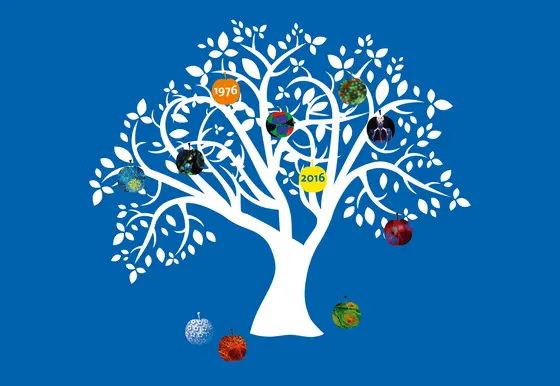“Germany and Israel are linked by a unique relationship. In the postwar period, scientific contacts prepared the mutual approach of the two countries. Through their collaboration, Israeli and German researchers paved the way for the establishment of diplomatic relations," says Johanna Wanka, Germany’s Federal Minister of Education and Research. With these words, the minister refers to the historic context that led to the cooperation agreement between the German Cancer Research Center (Deutsches Krebsforschungszentrum, DKFZ) and the Israeli Research Ministry.
In 1976, representatives of the DKFZ and the then National Council for Research and Development (later to become: Ministry of Science, Technology and Space, MOST) signed a collaboration agreement. The agreement regulates the support of binational collaborative projects in cancer research that are jointly pursued by a German research team (from the DKFZ) and an Israeli research team (from various universities and institutes). So far, 171 tandem projects have been funded.
“Over the decades, the joint research projects have produced the important results and an impressive number of several hundred publications," said Michael Boutros, acting Scientific Director of the DKFZ, at the symposium in Tel Aviv. “Beyond scientific success, the program has also contributed to building intensive networks and many close friendships among Israeli and German cancer researchers."
The DKFZ-MOST cooperation was already supplemented by a further venture on the occasion of its 30th anniversary: the annual “German-Israeli Cancer Research School" for young cancer researchers from the DKFZ and Israel. “A fully successful project where students from both countries meet and have the opportunity to discuss relevant scientific topics with renowned cancer researchers," says Peter Angel, who coordinates the cooperation program on the part of the DKFZ.
The German-Israeli research results have contributed many important findings on how cancer develops and how it can be treated more effectively. Numerous scientists who were supported under the DKFZ-MOST agreement have been honored with distinctions and awards. The most glorious among these was the 2004 Nobel Prize for Chemistry to Aaron Ciechanover from the Technion – Israel Institute of Technology in Haifa.
“The DKFZ-MOST cooperation agreement served as a model for further binational initiatives," says Otmar Wiestler, President of the Helmholtz Association. “For example, at the German-Israeli Research School in Cancer Biology the Weizmann Institute and the DKFZ offer a joint training program for PhD students. Participants benefit from the strengths of both institutes, they have both Israeli and German mentors, and they are given the opportunity to be a guest researcher at the partner institute. The DKFZ-MOST collaboration also served as a model for a new partnership in the area of personalized medicine, in which various Helmholtz Centers of Health Research and Israeli institutes take part in joint projects."
In his address concluding the symposium, Israel's Research Minister Ofir Akunis found moving words: “I thank all parties who have been involved in making the German-Israeli cooperation work over the past four decades. I am particularly pleased about the steady commitment to the cooperation program by DKFZ’s directors. I firmly believe that scientific and friendly relations such as ours make an important contribution to securing a future that is peaceful and worth living for humankind."



